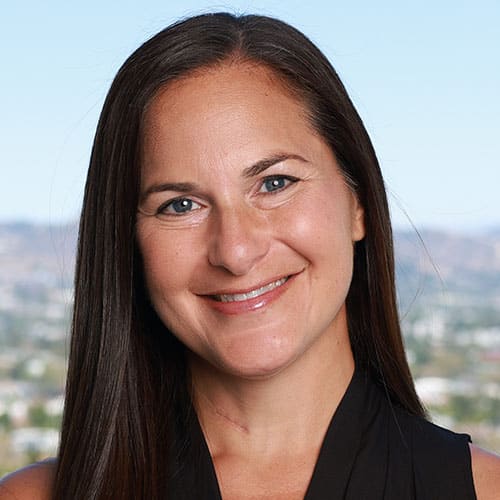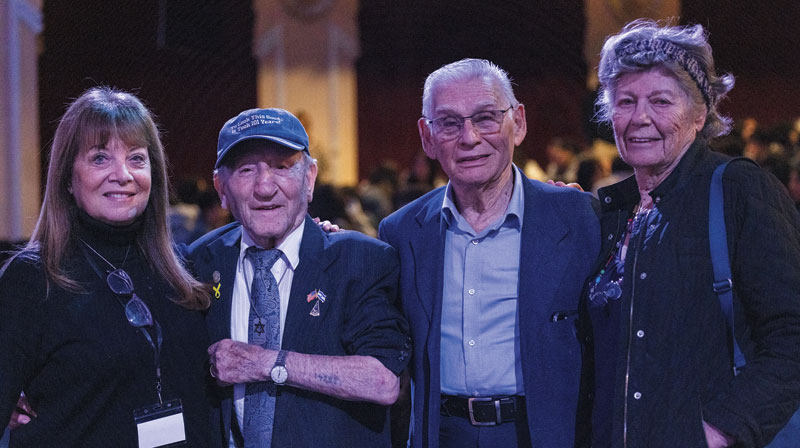
Oct. 7 launched an unprecedented period of philanthropy and grantmaking, unlike anything I have seen in my 15-plus years in the field. The outpouring of support from the Jewish community has been truly remarkable and much longer lasting than other emergencies.
Increasingly, donors have expressed interest in identifying the most pressing and timely areas of need, with a particular focus on addressing the national rise in antisemitism.
Increasingly, donors have expressed interest in identifying the most pressing and timely areas of need, with a particular focus on addressing the national rise in antisemitism. Our Israel-based philanthropy consultant, Offi Zisser, recently offered a sobering account of the major challenges Israel is facing today, more than seven months into the conflict. Specifically:
• Government cutbacks have compounded challenges for Israel’s social infrastructure because many nonprofits rely on public support for 50-80% of their operating budgets.
• Welfare and educational programs are being reduced or cancelled.
• And Israel’s economy is facing difficulties due to the war.
With all of this in mind, we recommend providing general operating support to trusted nonprofits so that they have the resources to survive and adapt in times of crisis. If you’re looking to help address the most pressing needs, we recommend directing donations in the following areas:
1. Emergency Needs in Israel
In her webinar, Offi emphasized the need for mental health and trauma support. It’s estimated that over 500,000 Israelis are at risk of developing PTSD and there is a critical shortage of therapists, psychologists and social workers operating locally. Physical rehabilitation is also a priority and increasingly needed — Israel’s disabled population has grown 30% due to soldiers and civilians being wounded since Oct. 7. In addition, aid to Northern Israel, advocacy and support for hostages, building social cohesion, and bringing Israelis together to heal as a nation are all essential.
2. Nonprofits You Supported Prior to Oct. 7, Locally and in Israel
Some Jewish nonprofits have experienced a decrease in funding due to donors prioritizing their funds to address the crisis in Israel. Our local Jewish nonprofits, schools, and synagogues make up the fabric of the flourishing Jewish community locally. We still have a responsibility to our local community even when crisis strikes abroad.
3. Combatting Antisemitism
The Anti-Defamation League has recorded a 337% increase in antisemitic incidents year over year. Today, with the rampant increase in anti-Israel demonstrations on university campuses, it is even more critical to support efforts that address this threat to the Jewish people. We recommend support for everything from increased security measures to advocacy and safety on social media channels, programs to educate our children and raise a well-informed next generation, and funding for robust Jewish life across our communities.
4. Health and Well-being of Jewish Communal Staff
Jewish professionals are the fabric of Jewish life. They educate our children, engage our teens and young adults, support our seniors, provide direct social services to our community, and so much more. A recent community-wide survey revealed that the Jewish nonprofit community is on the edge of a well-being and burnout crisis. Now, more than ever, leaders are seeking to prioritize staff wellness, team building, and professional development to foster environments that will retain and support a strong workforce.
Each one of us has the individual capacity to make a difference, turn tragedy into action, and, in the process, meet the urgent needs of the moment. This is a time to support emergency needs and to support your favorite long-time charities.
I continue to be inspired by the daily generosity throughout our community. I am proud to be a part of a team ensuring this timely and vital support reaches the people and communities in need.
Naomi Strongin is vice president of the Jewish Community Foundation of Los Angeles and directs its Center for Designed Philanthropy, helping fund holders give more effectively. The Foundation, founded in 1954, has $1.3 billion in charitable assets, 1,400 fund holders, and distributed $183 million in grants last year locally, nationally, and in Israel.






















 More news and opinions than at a Shabbat dinner, right in your inbox.
More news and opinions than at a Shabbat dinner, right in your inbox.